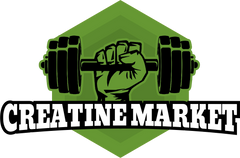As more runners explore ways to enhance their performance and recovery, creatine for runners has emerged as a promising supplement that could revolutionize training routines and race-day results. While traditionally associated with strength training, recent research reveals that creatine offers significant benefits for endurance athletes, making creatine supplementation for runners an increasingly popular choice among both recreational joggers and competitive marathoners.
Understanding Creatine's Role in Running Performance
Creatine plays a crucial role in energy production during exercise, particularly during high-intensity efforts. For runners, this means enhanced performance during interval training, hill sprints, and those crucial final kilometers of a race. The supplement works by increasing phosphocreatine stores in muscles, providing quick energy when it matters most.
The Science Behind Creatine and Endurance
Research has shown that creatine supplementation can benefit endurance athletes in several ways. The primary mechanism involves the ATP-PC energy system, which becomes more efficient with increased creatine stores. This improvement is particularly beneficial during high-intensity portions of training, sprint finishes in races, and recovery between intervals. Runners also experience enhanced performance during uphill sections, where the additional energy stores prove invaluable.
How Does Creatine Help Increase Performance?
Creatine enhances performance by increasing phosphocreatine stores in muscles, providing rapid energy during high-intensity efforts like sprints and hill climbs. It improves recovery between training sessions by reducing muscle damage and inflammation, allowing for more frequent quality workouts.
Creatine enhances performance in other ways, too. The supplement enhances muscle function and reduces the oxygen cost of running at submaximal intensities, leading to better running economy. Additionally, creatine helps maintain proper form during extended efforts by supporting energy production in working muscles, particularly beneficial during race finishes and intense training sessions.
Benefits of Creatine for Distance Runners
Distance runners can experience multiple advantages from incorporating creatine into their training regimen. These benefits extend beyond the traditional strength-training applications most commonly associated with creatine supplementation.
Enhanced Recovery Between Training Sessions
One of the most significant benefits of creatine for runners is improved recovery. The supplement helps reduce muscle damage and inflammation after intense training sessions. This enhanced recovery process enables faster muscle repair and reduces soreness between workouts. Additionally, improved recovery leads to better adaptation to training loads, allowing runners to prepare more effectively for subsequent training sessions.
Improved Sprint Performance and Race Finishing
Creatine supplementation particularly shines during high-intensity moments in running. Whether it's maintaining form during the final stretch of a marathon or powering through speed workouts, creatine provides the energy needed for these crucial moments. The increased phosphocreatine stores help runners maintain their pace and form when it matters most.
How Creatine Supports Running Economy
Running economy, or the energy cost of running at a given pace, can be improved through creatine supplementation. This improvement comes from multiple physiological adaptations and benefits.
Creatine Enhances Muscle Function
Creatine helps maintain muscle function during long runs by supporting energy production in working muscles. This enhanced function leads to reduced fatigue during extended efforts and improved muscle fiber recruitment patterns. The result is better maintenance of proper form throughout training sessions, contributing to overall running efficiency.
Creatine Reduces Oxygen Cost During Steady-State Running
Research indicates that creatine can help reduce the oxygen cost of running at submaximal intensities, leading to improved efficiency during long-distance events. This increased efficiency allows runners to maintain their desired pace with less energy expenditure.
How Much Creatine Creatine Should Runners Take?
For runners new to creatine supplementation, following a structured loading and maintenance protocol can maximize benefits. The optional loading phase consists of 20g daily, split into four doses over 5-7 days, ideally taken with carbohydrates for better absorption. The maintenance phase follows with 3-5g daily, taken consistently with meals for sustained benefits.
Runners Should Stick to Creatine Monohydrate
While several forms of creatine exist, creatine monohydrate remains the most researched and cost-effective option. It offers proven effectiveness with excellent absorption rates and maintains stability in various storage conditions, providing the best value for money among available options.
Combining Creatine with Running Training
Runners should adjust their creatine supplementation based on their training phase. During base building, the focus should be on consistent supplementation while monitoring hydration levels and paying attention to absorption and tolerance. Peak training periods require maintaining regular dosing and timing intake around key workouts, with consideration for slight increases during high-volume weeks. During taper and race periods, runners should continue their normal maintenance dose while avoiding new supplementation close to race day and ensuring proper hydration maintenance.
Managing Potential Side Effects
Water Retention and Weight Gain
Some runners may experience initial water retention when starting creatine supplementation. This effect typically stabilizes within 1-2 weeks and requires adequate hydration. While it may temporarily affect race weight, the water retention generally doesn't impact performance negatively.
Proper Hydration Requirements
Maintaining proper hydration becomes even more crucial when supplementing with creatine. Runners should increase their daily water intake and monitor urine color for hydration status. Extra attention to hydration is necessary during hot weather training, and runners should carefully consider their electrolyte balance during long runs.
Real-World Applications and Success Stories
Many runners have successfully incorporated creatine into their training regimens, reporting improved interval training performance and better recovery between hard sessions. They've experienced enhanced ability to maintain form during long runs and stronger finishing kicks in races, demonstrating the practical benefits of creatine supplementation.
Research-Backed Evidence for Runners
Recent studies have demonstrated significant benefits of creatine supplementation for endurance athletes. Research shows improved time to exhaustion in endurance events and enhanced recovery between training sessions.
Studies also indicate reduced muscle damage markers after long runs and better maintenance of lean muscle mass during high-volume training periods.
Conclusion: Maximizing Running Performance with Creatine
Creatine for runners represents a valuable tool in the endurance athlete's arsenal. When properly implemented, it can enhance both training quality and race-day performance. The key lies in understanding proper dosing, timing, and integration with different training phases.
For runners considering creatine supplementation, starting with a conservative approach and monitoring individual response is recommended. As with any supplement, consistency and proper implementation are crucial for maximizing benefits while minimizing potential side effects.
Remember that creatine supplementation works best as part of a comprehensive training program that includes proper nutrition, adequate rest, and structured training progression. When these elements align, runners can expect to see meaningful improvements in their performance and recovery capabilities.
References
Forbes SC, Candow DG, Neto JHF, Kennedy MD, Forbes JL, Machado M, Bustillo E, Gomez-Lopez J, Zapata A, Antonio J. Creatine supplementation and endurance performance: surges and sprints to win the race. J Int Soc Sports Nutr. 2023 Dec;20(1):2204071. doi: 10.1080/15502783.2023.2204071. PMID: 37096381; PMCID: PMC10132248.




